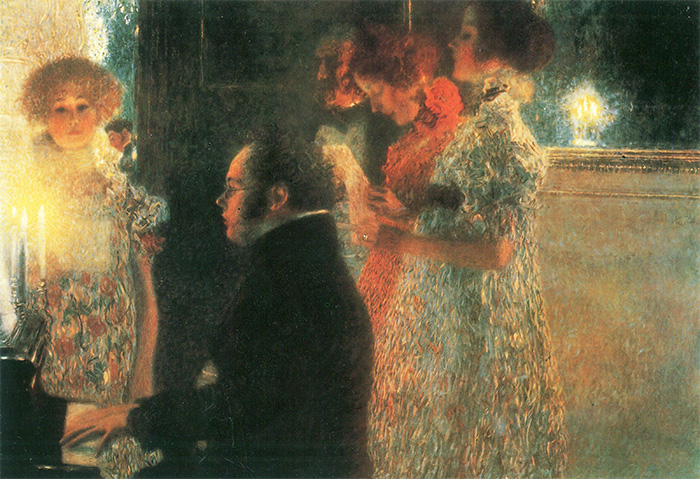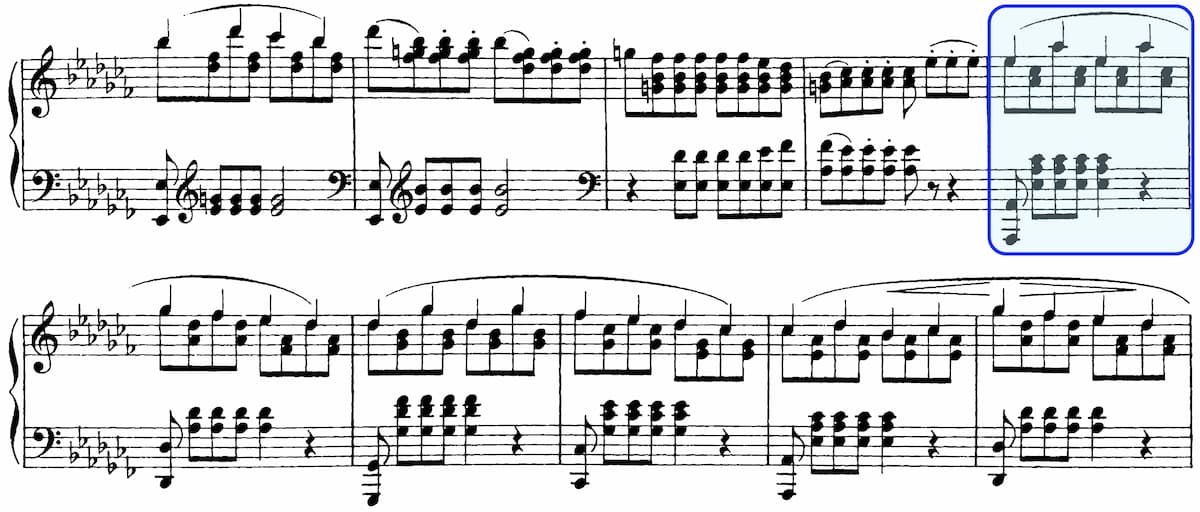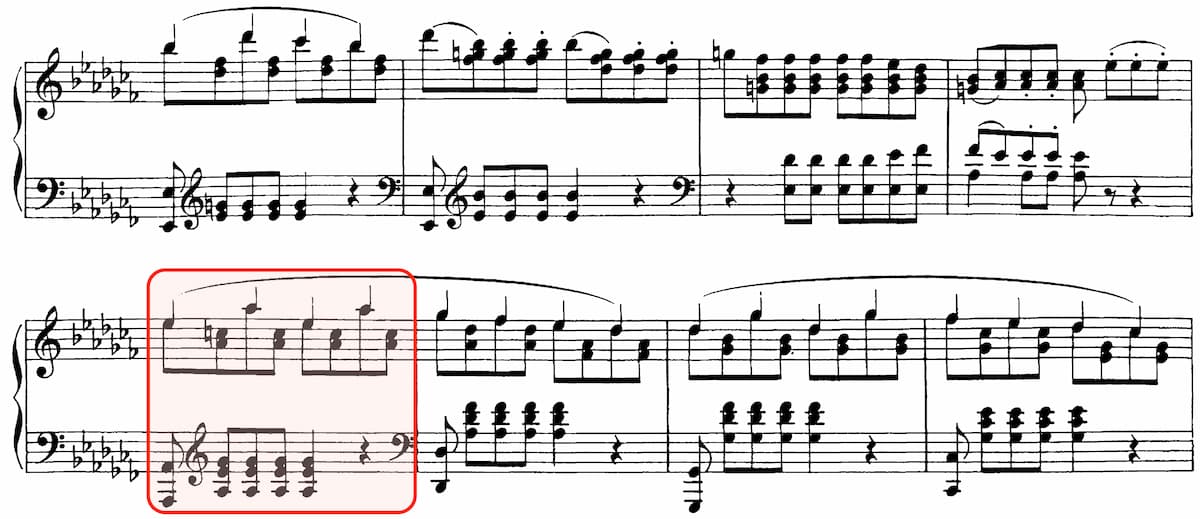by Anson Yeung

Schubert at the Piano – Gustav Klimt (1899)
Schubert is probably the only composer who can create music that is even more heart-wrenching and disturbing in major keys than in minor keys. An example I would immediately think of would be his Klavierstücke No. 2 in E-flat major. Starting with a gentle and intimate atmosphere, it then transits into the tumultuous first trio and later the more poignant second trio in A-flat minor. There’s a moment where the music suddenly detours into A-flat major (a dominant seventh technically) for merely one bar and then returns to the original tonality. Compare 6:36 and 9:07 in the recording below – this never fails to give me goosebumps, as if there’s finally a gleam of hope, but it’s extinguished in a matter of seconds.

Figure 1
The bar highlighted in blue appears for the first time in A-flat minor.

Figure 2
This time it is in A-flat major but returns to the original tonality after one bar.
Schubert is always a complex figure, with his music oozing so much nostalgia, hope, loss, grief, frustration, and many more. All these emotions are what make human beings fragile, but at the same time, what make us human. His music is often suffused with bittersweetness, in the sense that the apparently more joyous moments are, in fact, reminiscences of the unattainable past, while the music often draws us back to the darker side as if an interrupted dream.
Paul Lewis illuminated Schubert’s emotional landscape with an uncompromising interpretation of his sonatas in Hong Kong. In the Sonata in A major, D.664, I experienced embracing warmth, a sense of relief despite tinges of sorrow, and the imagery of rustic scenes, with the third movement full of buoyancy and a dancing pulse. On the other hand, Schubert’s neuroses and anguish fully came through in the Sonata in A minor, D. 845, coupled with such abandon and immensely white-hot passion from Lewis.
In my interview with Paul Lewis, he aptly described the “lack of resolution” in Schubert’s music, with which I greatly sympathise. Schubert often brings up conflicts without offering an answer, leaving us in a state of ambivalence. That’s something that makes his music close to my heart – after all, not everything in the world has or requires a resolution or an answer. Unlike Beethoven, Schubert accepted his fate as it was, and such an acceptance is most evident in his late sonatas.
Chopin once said, ‘Bach is an astronomer, discovering the most marvellous stars. Beethoven challenges the universe. I only try to express the soul and the heart of man.’ We can perhaps draw a parallel here. Schubert neither explored the topics of divinity and religion nor attempted to fight against his fate. Instead, it is all about the deepest, often ineffable human emotions, which is probably why listening to his music can provoke such a probing ache.
As with Schubert’s music, this piece of musing (or nonsensical mumbling for some) shall come to an end without a resolution, which is paradoxically yet to be discovered in his music per se.